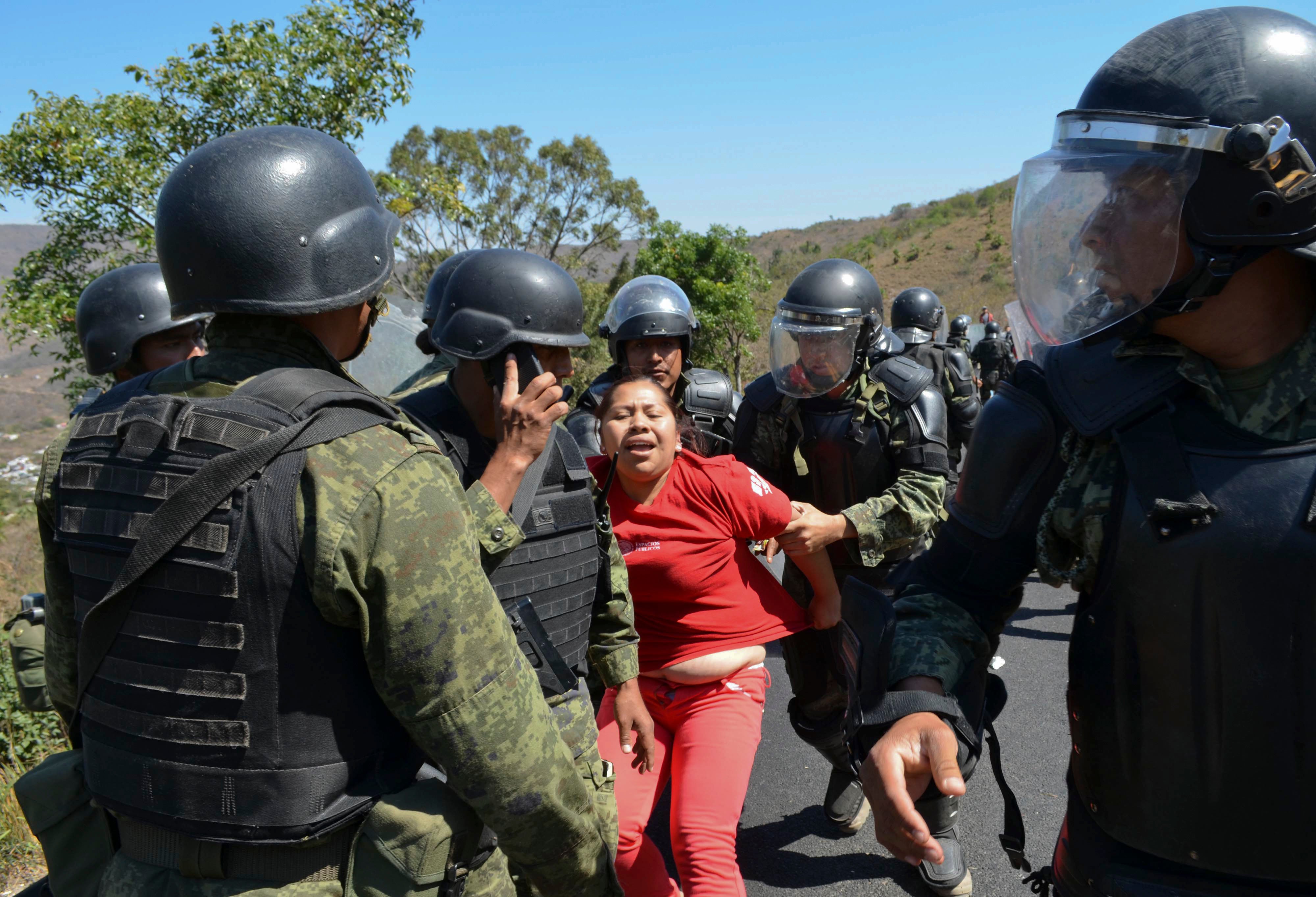Mexico court: army doesn't have to tell police about arrests
Mexico's Supreme Court has ruled that the armed forces do not have to advise civilian police when they make an arrest

Your support helps us to tell the story
From reproductive rights to climate change to Big Tech, The Independent is on the ground when the story is developing. Whether it's investigating the financials of Elon Musk's pro-Trump PAC or producing our latest documentary, 'The A Word', which shines a light on the American women fighting for reproductive rights, we know how important it is to parse out the facts from the messaging.
At such a critical moment in US history, we need reporters on the ground. Your donation allows us to keep sending journalists to speak to both sides of the story.
The Independent is trusted by Americans across the entire political spectrum. And unlike many other quality news outlets, we choose not to lock Americans out of our reporting and analysis with paywalls. We believe quality journalism should be available to everyone, paid for by those who can afford it.
Your support makes all the difference.Mexico’s Supreme Court ruled Tuesday that the armed forces do not have to advise civilian police when they make an arrest.
The issue is a sensitive one, because Mexico’s military is supposed to be participating in civilian law enforcement only to ‘support’ police.
But the court ruled Tuesday that soldiers can make an arrest without telling police, as long as they eventually register the arrest in a computer system that civilian agencies use.
The armed forces have frequently been accused of violating human rights. But Mexico’s underpaid, antiquated police forces can’t handle the country’s well-armed drug cartels alone.
Some civilian police forces complain that the armed forces, and the largely militarized National Guard, aren't trained in proper arrest procedures and filling out standardized crime reports.
A broader criticism is that the armed forces and National Guard do little investigation, and thus can't build strong cases except when they catch suspects in the act of committing a crime.
Last year, the court upheld a constitutional change that allows the military to continue in law enforcement duties until 2028, ruling against appeals that argued law enforcement should be left to civilian police forces.
Critics warned President Andrés Manuel López Obrador is militarizing the country and ignoring the separation of powers.
Putting soldiers and marines on the streets to fight crime was long viewed as a stopgap measure to fight the country’s well-armed drug cartels. In 2019, legislators voted that civilian police should take over those duties by 2024.
But López Obrador supports relying on the military indefinitely because he views the armed forces as more honest. The president has given the military more responsibilities than any Mexican leader in recent memory.